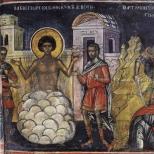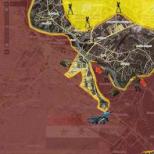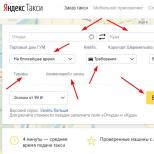All-Russian educational project school of young legislators.
On December 16, in the village of Losevo, the School of Young Legislators, held under the auspices of the regional Legislative Assembly, completed its work. Since 2012, this project has been bringing together members of youth advisory bodies and young deputies not only from the entire region, but also from the entire North-West of Russia. This year, the geography of the school expanded - it was visited by three members of the Youth Council of Estonian Narva, with which young leaders of the border town of Ivangorod work closely. And this summer, members of the region’s Youth Parliament also established close contacts with their Estonian colleagues.
Both days of the School of Young Legislators, which this time united the creative energy of 80 young activists from different regions, its work was observed by Deputy Alexander Russkikh, who supervises the Youth Parliament of the Leningrad Region (“ United Russia"). On Saturday morning in Losevo, he and his colleagues held a meeting of the discussion platform “The Present and Future of Youth Parliamentarism.” The meeting participants learned about the cycling project in our region - the creation of bicycle paths, as well as ecological walking trails. Next year, declared the year of tourism in the Leningrad region, will be a breakthrough in this direction. Already this year, the first foreign tourists on bicycles appeared in the border town of Ivangorod - they learned about the cycling of the region from the material of Dutch journalists. Deputy Head of Ivangorod Tatyana Sharova, who also spoke in Losevo, spoke about this.
According to her, the youth of neighboring Narva - the generation that grew up on the territory of the European Union - are still drawn to Russia and are happy to establish connections through culture, sports, and now also youth policy. “This youth - and in Narva 95% of the population is still Russian-speaking - is exactly the “soft power” that we cannot miss, we need to strengthen these contacts,” she noted. And I remembered successful projects, such as a bicycle ride to places of military glory on the territory of two countries (unfortunately, Russian youth have to cross the border without bicycles - they are provided on the territory of Narva) and other projects.
Tatyana Sharova also noted that the money that passing tourists leave in Ivangorod is still very insignificant, but in the future the city hopes to develop tourism infrastructure, which is growing before our eyes in the border cities of Estonia and Finland.
The day before, young leaders, having arrived in Losevo, underwent several interesting trainings: on “digital image” - taught by Nicholas Stanley, head of the Youth Media Center of the Leningrad Region, as well as on team building and public speaking techniques.
The main point of the School’s business program in the Priozersky district was an open joint meeting of the Youth Parliament of the Leningrad Region and the Youth Government of the Leningrad Region. The Chairman of the Youth Parliament, Evgeniy Ignatiev, presented the “Rating of Youth Policy” project, which ultimately, through a network resource common to the region, will help streamline, research and intensify the implementation of events for young people through monitoring and assigning “points” to municipalities.
The result of the School’s work, in addition to fruitful communication and exchange of ideas, was three draft legislative initiatives proposed by youth advisory bodies of the Leningrad region. The first of them concerned local youth work - young leaders are confident that it is necessary to separate work with youth into a separate area from sports and culture - accordingly, separate specialists in youth policy are needed. Another initiative was related to the election process: there was a proposal to legislate the concept of “agitator”, his rights and obligations, as well as restrictions associated with this activity.
The third legislative initiative, put forward by Ivan Tulkov, a member of the Youth Parliament from the Tosnensky district, repeated the question that was raised at a recent meeting with the Governor by deputies of the Legislative Assembly of the region, in particular, Andrei Lebedev (LDPR). To get to the place of study in St. Petersburg through the region, a student from the region cannot yet take advantage of the travel discount ground transport except for the railway. You have to pay full price and travel by commercial routes. Members of the Youth Parliament warmly welcomed the desire of regional deputies to correct this injustice.
At the School meeting, three working groups were created on these regional initiatives - each of them should meet to further refine the initiatives in January next year. And guests from other regions who visited Losevo noted that, having learned from the successful experience of their neighbors, they would try to implement the most good ideas at home. Those gathered expressed hope that such an “advanced” format as the school of Young Parliamentarians will continue to find support from government officials and that young leaders will be able to gather on Leningrad soil in a year.
Elena Garib, Press service of the Legislative Assembly of the Leningrad Region
October 1 at Presidential Academy took place Grand opening School for a young legislator, in which more than 500 representatives of the youth chambers of Moscow districts will undergo training.
The Young Legislator's School is a joint educational project RANEPA, Center for Youth Parliamentarism, Moscow Department of Education, Department of Territorial Executive Authorities of Moscow. The project is being implemented with the support of the Moscow Government and is aimed at developing a legal culture among young citizens. The preparation of a personnel reserve for local government bodies in Moscow will be ensured.
At the opening of the school, those gathered were greeted by the Vice-Rector of RANEPA Andrei Margolin. The head of the Department of Territorial Executive Authorities of Moscow, Vyacheslav Shulenin, emphasized that “the city needs professionally trained deputies.” “Training a young legislator at the School will help aspiring politicians understand that parliamentary activity is hard, everyday work. I think that after a deep immersion in the realities of parliamentary work, only the most responsible and purposeful young legislators will remain in the project,” explained Vyacheslav Shulenin.
The project is designed for those who are ready to move from theory to practice, said Georgy Savchenko, chairman of the section on legislation, regulations, rules and procedures of the Youth Chamber under the Moscow City Duma. “The classes will be conducted by teachers of the Presidential Academy, which is the forge of the country’s leadership,” he emphasized. – Chairman of the Federation Council Valentina Matvienko, Russian Defense Minister Sergei Shoigu, Chairman of the Moscow City Duma Alexei Shaposhnikov and other leaders who reached administrative heights studied here. Now young parliamentarians also have this opportunity,” said Georgy Savchenko.
 On the first day of classes, the head of the department of parliamentarism and interparliamentary cooperation, Dr. Paul, spoke to the students. Sc., professor Valery Bakushev. A lecture on the structure of government bodies in the capital was given by Anastasia Derkach, Deputy Head of the Department of Territorial Executive Authorities of Moscow.
On the first day of classes, the head of the department of parliamentarism and interparliamentary cooperation, Dr. Paul, spoke to the students. Sc., professor Valery Bakushev. A lecture on the structure of government bodies in the capital was given by Anastasia Derkach, Deputy Head of the Department of Territorial Executive Authorities of Moscow.
As part of the new project, young citizens will acquire the skills to participate in rule-making and legislative activities at the municipal and regional levels. Students at the Young Legislator's School will become familiar with the work and powers of representative authorities. They will learn the legal aspects of rulemaking and lawmaking.
The uniqueness of the project lies in the fact that during practical classes, students will work on various projects, including the effective development of territories and many others. etc. Future deputies will learn to represent and defend the interests of voters and seek solutions to their problems. In addition to RANEPA teachers, classes for participants in the Young Legislator's School will be conducted by practitioners, deputies of the Moscow City Duma and municipal deputies of the capital's districts.
“Taking into account all these areas, it was decided to give the project an all-Russian scale,” she emphasized.
8 pilot regions were identified, in which, by the end of 2016, seminars for higher education students were organized educational institutions. Among them - Khabarovsk region, Khanty-Mansiysk autonomous region, Tomsk, Samara and Leningrad regions, Crimea, Kabardino-Balkaria and the city of Moscow.
During my studies special program students, as well as members of youth public councils and associations were introduced to the activities of the state apparatus and local governments, the basics of law-making activities. The main result educational program became new draft legislative initiatives at the federal and regional levels, developed by young people who took part in the “School of Young Legislators.”
At the beginning of 2017, the Federation Council invited the most active project participants to the All-Russian Youth Legislative Forum. During the forum, ideas were presented that added to the portfolios of the committees of the upper house of Parliament. The event took place in preparation for the World Festival of Students and Youth 2017 in Russia.
Thus, the participation of young citizens in the legislative initiative was discussed in the Federation Council on March 2, 2017 at the aforementioned All-Russian Youth Legislative Forum. More than 200 people took part in it - government representatives Russian Federation, federal government bodies, business and the public, youth and children's public associations and organizations, funds mass media.
As part of the forum, a plenary session was held chaired by the Deputy Chairman of the Federation Council Galina Karelova , where they discussed the possibility of participation of the population of the Russian Federation in the legislative activities of government bodies, as well as the use by citizens of the right of legislative initiative.
Next, thematic sections began to work, where graduates of the “School of Young Legislators” project, which took place in 8 regions of the country, presented their proposals in the field of legislation. Students from Amur, Tomsk, Samara, Leningrad regions, Crimea and the Kabardino-Balkarian Republic, Moscow and the Khanty-Mansiysk Nuclear District defended their initiatives to amend existing legislation. Proposed initiatives address security issues traffic, migration policy, economic relations and the expansion of powers of individual federal authorities.
Thus, the authors of the bills proposed recognizing hoverboards vehicle, introduce amendments to the Constitution of the Russian Federation “On vesting the Prosecutor General of the Russian Federation with the right of legislative initiative”, limit the sale of non-alcoholic drinks in Russia energy drinks minors and much more.
As a result of the Forum, a decision was made on the possibility of introducing bills for consideration by the Russian Parliament.
On March 15, 2017, the National News Service held a press conference dedicated to the “School of Young Legislators” on the topic: “Legislative initiatives of citizens. Will the young population get the opportunity to prepare bills for the country?”
They defended their legislative initiatives proposed at the Youth Legislative Forum in the Federation Council graduate students project.





